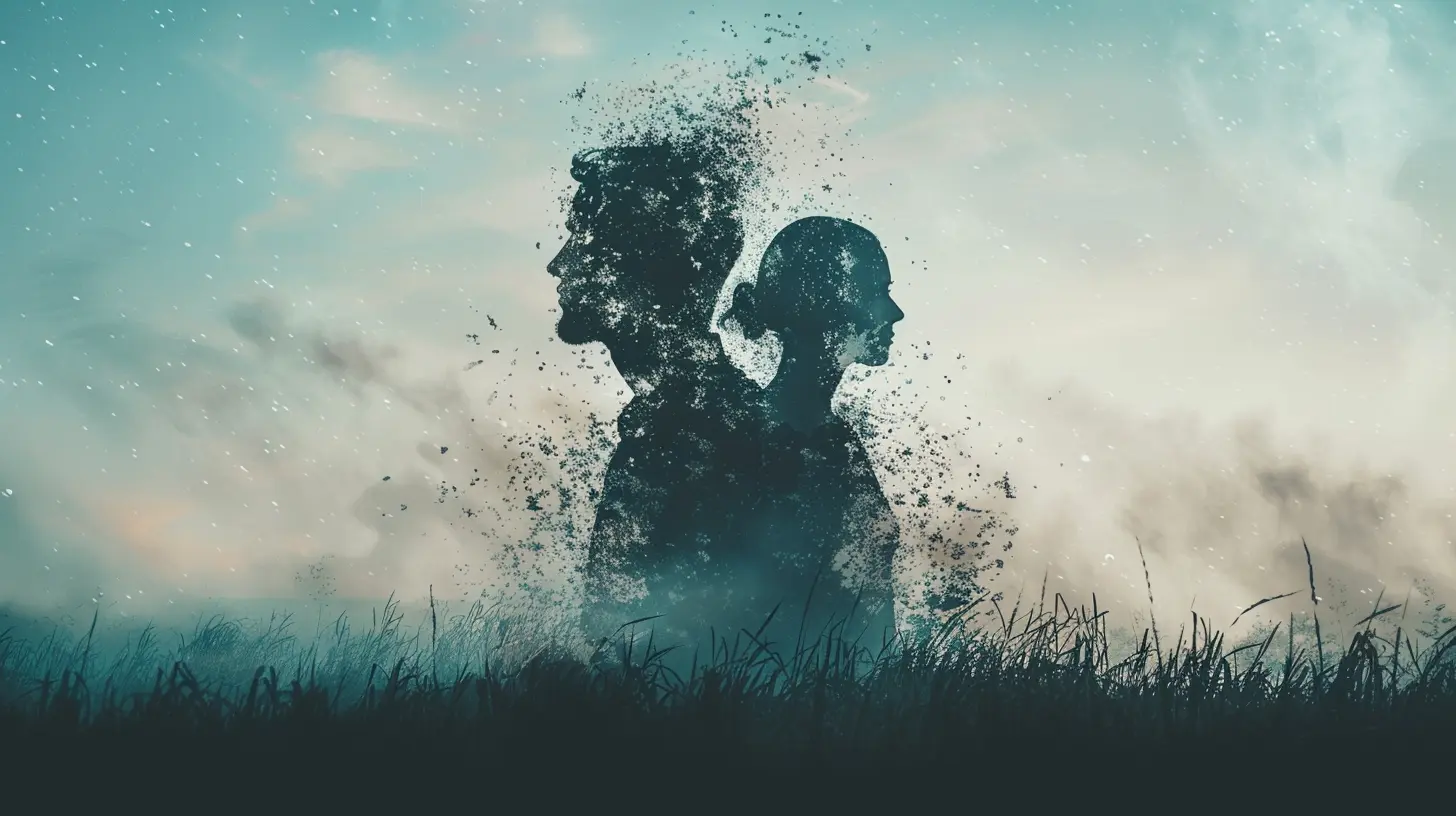How Emotional Dependency Sabotages Personal Growth
22 December 2024
Have you ever found yourself relying on someone else for emotional stability? Maybe you’ve noticed that your happiness or self-worth hinges on someone else’s approval or attention. If this resonates with you, chances are you’re dealing with emotional dependency. And while it might feel comforting to lean on someone, it can actually stifle your personal growth in ways you might not realize.
In this article, we’re diving deep into the world of emotional dependency—what it is, how it shows up in your life, and most importantly, how it can sabotage your personal development. So, grab a snack, get comfortable, and let’s break it down in a way that’s easy to understand and relatable.

What is Emotional Dependency?
Before we can talk about how emotional dependency affects personal growth, it’s essential to understand what it actually is. Emotional dependency happens when someone relies on another person to fulfill their emotional needs.Think about it this way: instead of being your own emotional anchor, you’re tied to someone else’s boat. If their boat is steady, you feel calm and secure. But if that boat starts rocking, you’re tossed around in the waves of anxiety, insecurity, and fear.
Now, this doesn’t mean you can’t have emotional connections with others—after all, we’re social beings. But emotional dependency goes beyond healthy connections. It’s when the balance tilts, and you find your happiness, self-worth, or even identity wrapped around another person’s opinions, actions, or presence.
Signs of Emotional Dependency
You might be wondering, “How do I know if I’m emotionally dependent?” Here are some common signs that might help you recognize it:- Constant Need for Approval: Do you feel uneasy until you get validation from others? Whether it’s your partner, friend, or family member, their opinion holds an overwhelming amount of weight.
- Fear of Being Alone: If the idea of being by yourself makes you anxious, or you’re always seeking company to avoid loneliness, that’s a red flag.
- Overthinking Reactions: Do you obsess over what someone thinks about you or constantly replay conversations in your head, worrying if you said the right thing?
- Sacrificing Your Needs: Are you putting your own needs aside to make someone else happy, even if it costs your well-being?
- Mood Swings Based on Others’ Behavior: If someone else’s mood dictates how you feel, you may be emotionally dependent.
If these behaviors sound familiar, it’s possible that emotional dependency is playing a role in your relationships—and it’s probably affecting your personal growth more than you think.

How Emotional Dependency Sabotages Personal Growth
So, how exactly does emotional dependency interfere with your growth as an individual? Let’s break it down.1. Loss of Identity
When you’re emotionally dependent, it’s easy to lose sight of who you are. You become so wrapped up in someone else’s world that your own wants, needs, and dreams take a backseat. Over time, you might forget what makes you unique or what your true passions are.Think of it like blending two colors of paint—if you keep mixing your identity with someone else’s, you’re left with a murky, indistinct shade that doesn’t resemble either of you. Without a strong sense of self, it’s challenging to grow as an individual because you’re not sure where you end and the other person begins.
2. Stunted Emotional Intelligence
Part of personal growth is developing emotional intelligence—your ability to understand and manage your own emotions, as well as recognize and empathize with the emotions of others. But when you’re emotionally dependent, you outsource your emotional regulation to others.Instead of learning how to cope with feelings like sadness, anger, or insecurity on your own, you rely on someone else to soothe you. This prevents you from building resilience and emotional maturity, which are key components of personal growth.
3. Fear of Taking Risks
Growth often requires stepping outside your comfort zone, whether it’s pursuing a new job, moving to a new city, or simply trying something different. But when you’re emotionally dependent, the fear of losing someone’s approval or support can keep you stuck in place.You might avoid taking risks because you’re worried about how it will affect the relationship or how the other person will perceive you. This fear can paralyze you, preventing you from reaching your full potential.
4. Codependent Relationships
Emotional dependency often leads to codependent relationships, where both parties rely on each other to meet emotional needs in unhealthy ways. In these relationships, your sense of worth is tied to how much you can “fix” or support the other person, and vice versa.Instead of growing together, you end up reinforcing each other’s emotional crutches. This dynamic can become toxic and prevent both individuals from developing a sense of self-reliance and independence.
5. Reduced Self-Confidence
When you constantly seek validation from others, you’re essentially telling yourself that your own opinion isn’t enough. Over time, this can erode your self-confidence. You start to doubt your abilities, question your decisions, and feel like you’re not capable of handling life on your own.This lack of confidence makes it difficult to set boundaries, assert your needs, or pursue your goals—all of which are crucial for personal growth.

Why Do We Become Emotionally Dependent?
Now that we understand how emotional dependency stunts personal growth, let’s take a step back and ask: Why do we become emotionally dependent in the first place?The reasons can vary, but it often stems from:
1. Insecurity and Low Self-Esteem
If you don’t feel good about yourself, it’s natural to seek validation from others. Emotional dependency can serve as a quick fix for feelings of inadequacy, even if it’s not a long-term solution.2. Past Trauma or Attachment Issues
People who experienced neglect, abandonment, or unhealthy relationships in childhood are more likely to develop emotional dependency as adults. They may have learned to associate love with dependence and feel that their worth is tied to someone else’s attention.3. Fear of Abandonment
The fear of being abandoned or rejected can drive emotional dependency. To avoid these painful feelings, we might cling more tightly to others, hoping that by making ourselves indispensable, we won’t be left behind.
How to Overcome Emotional Dependency
The good news? Emotional dependency isn’t a life sentence. With awareness and effort, you can break free and reclaim your personal growth. Here are some steps to help you along the way:1. Build Self-Awareness
The first step to change is recognizing the problem. Take time to reflect on your relationships and notice patterns of emotional dependency. Journaling or talking to a therapist can help you gain clarity on why you rely on others for emotional fulfillment.2. Cultivate Self-Love
Learning to love and accept yourself is key to overcoming emotional dependency. This is easier said than done, but it’s worth the effort. Practice self-care, engage in activities that make you feel good, and challenge negative self-talk. The more you learn to rely on yourself for happiness, the less you’ll need to seek it from others.3. Set Healthy Boundaries
Healthy relationships require boundaries. Start by setting small boundaries with the people in your life, whether it’s saying “no” to something that doesn’t serve you or taking time for yourself without feeling guilty. Boundaries help you protect your emotional energy and reinforce your independence.4. Develop Emotional Independence
Learning how to regulate your emotions is a crucial part of personal growth. When you feel anxious, sad, or insecure, instead of turning to someone else for comfort, try coping techniques like meditation, deep breathing, or writing about your feelings. With practice, you’ll become better at managing your emotions on your own.5. Focus on Personal Goals
Shift your focus from the relationship to yourself. What are your passions, dreams, and goals? What do you want to accomplish in life? By directing your energy towards personal growth, you’ll build a stronger sense of self and feel less reliant on others for fulfillment.6. Seek Professional Help
If emotional dependency is deeply rooted, working with a therapist can be incredibly beneficial. Therapy can help you unpack the underlying causes of your dependency and provide tools for building healthier emotional habits.Conclusion
Emotional dependency can subtly creep into our lives, making us believe that we need others to feel whole. But in reality, it’s a trap that prevents us from realizing our full potential. By recognizing the signs, understanding the impact it has on personal growth, and taking steps to cultivate emotional independence, we can break free from the cycle and start living life on our own terms.Remember, personal growth is all about becoming more of who you truly are—not who someone else wants you to be.
all images in this post were generated using AI tools
Category:
Emotional DependencyAuthor:

Gloria McVicar
Discussion
rate this article
14 comments
Ian Acevedo
Breaking free from emotional dependency unlocks your true potential—embrace growth, find your strength, and thrive independently!
February 3, 2025 at 5:25 PM

Gloria McVicar
Thank you for your insightful comment! Breaking free from emotional dependency is indeed crucial for personal growth and discovering our true strength. Let's continue to embrace that journey together!
Sara Wade
Challenging dependencies fosters true growth.
January 31, 2025 at 5:18 PM

Gloria McVicar
Thank you for your insightful comment! Challenging dependencies is indeed essential for fostering personal growth and developing resilience.
Sage McCord
Great insights! It’s so important to recognize how emotional dependency can hold us back. Remember, personal growth is a journey, and it’s okay to take small steps. Celebrate your progress, embrace your independence, and keep shining! You've got this—your best self is just around the corner! 🌟
January 27, 2025 at 4:54 AM

Gloria McVicar
Thank you! I completely agree—embracing independence is crucial for personal growth. Every small step counts! 🌟
Zylith Hensley
This article highlights the crucial link between emotional dependency and stunted personal growth, emphasizing the need for self-awareness and independence to foster true emotional development.
January 22, 2025 at 5:14 PM

Gloria McVicar
Thank you for your insightful comment! I'm glad you found the connection between emotional dependency and personal growth significant. Self-awareness is indeed key to fostering independence and true emotional development.
Pilar Valentine
This article beautifully captures the essence of emotional dependency and its impact on personal growth. It’s a powerful reminder that true strength lies in self-reliance. Thank you for sharing these insights; they inspire a journey toward healthier relationships and self-discovery.
January 20, 2025 at 5:58 AM

Gloria McVicar
Thank you for your thoughtful comment! I'm glad the article resonated with you and inspired reflection on self-reliance and healthier relationships.
Daria Daniels
Is our quest for connection trapping us in a web of unfulfilled potential?
January 16, 2025 at 5:19 PM

Gloria McVicar
Yes, our desire for connection can sometimes lead to emotional dependency, hindering personal growth and trapping us in unfulfilled potential. It's essential to find balance between connection and individual development.
Sybil Bell
Great insights! Understanding emotional dependency is crucial for personal growth. Recognizing these patterns empowers us to break free and cultivate healthier relationships. Embracing independence can lead to profound self-discovery and fulfillment. Keep spreading this important message!
January 10, 2025 at 5:28 PM

Gloria McVicar
Thank you for your thoughtful comment! I completely agree—recognizing emotional dependency is key to fostering independence and healthier relationships. Let's continue the conversation on this important topic!
Tobias Wheeler
Breaking free from dependency is the first step to thriving!
January 6, 2025 at 4:39 PM

Gloria McVicar
Absolutely! Breaking free from dependency empowers individuals to discover their true strengths and fosters personal growth.
Jaxon Benton
This article beautifully captures the delicate balance between connection and independence. Recognizing emotional dependency is a crucial step toward personal growth, fostering healthier relationships and a stronger sense of self. Thank you for sharing!
December 30, 2024 at 5:55 AM

Gloria McVicar
Thank you for your insightful comment! I'm glad you found the balance between connection and independence highlighted in the article. Your thoughts on emotional dependency and personal growth are so important!
Morgan Mason
Breaking free from emotional dependency is a powerful step toward personal growth. Embrace the journey of self-discovery, nurture your independence, and trust in your resilience. Remember, you have the strength within you to create a fulfilling, authentic life. Every small step forward is progress—keep moving toward the best version of yourself!
December 25, 2024 at 3:33 PM

Gloria McVicar
Thank you for your insightful comment! I completely agree—embracing self-discovery and nurturing independence are crucial for personal growth. Every step counts on the journey to authenticity.
Zephyrian Sheppard
This article sheds light on a crucial aspect of personal growth. Recognizing emotional dependency is the first step towards reclaiming your independence. Embrace the journey of self-discovery and empowerment—it's never too late to cultivate healthy relationships with yourself and others. Keep pushing forward; your growth matters!
December 24, 2024 at 5:35 PM

Gloria McVicar
Thank you for your thoughtful insights! I completely agree—recognizing emotional dependency is indeed key to fostering independence and healthy relationships. Let's continue this important journey of self-discovery together!
Elizabeth Wolfe
Loved this piece! It beautifully highlights the importance of breaking free from emotional dependency. Embracing independence paves the way for self-discovery and personal growth. Cheers to thriving on our own!
December 24, 2024 at 5:28 AM

Gloria McVicar
Thank you! I'm glad you resonated with the message. Here’s to embracing independence and thriving!
Sarah Barker
Emotional dependency can create a cycle of stagnation, where individuals prioritize others' needs over their own. This not only inhibits personal growth but also fosters unhealthy relationships, ultimately hindering the development of self-awareness and independence.
December 23, 2024 at 5:38 PM

Gloria McVicar
Thank you for your insightful comment! Emotional dependency indeed stifles personal growth and self-awareness by creating an unhealthy dynamic that prioritizes others over oneself.
Azriel Vasquez
Great insights! Breaking free from dependency fosters true personal growth!
December 23, 2024 at 4:59 AM

Gloria McVicar
Thank you! I'm glad you found the insights valuable—embracing independence is indeed key to fostering personal growth.
MORE POSTS

The Art of Emotional Self-Regulation: Finding Balance

How to Turn Stress into Motivation and Personal Growth

The Role of Mindfulness in Reducing Emotional Dependency

Emotional Growth and Self-Reflection: The Power of Looking Inward

The Psychology of Habits: Why We Do What We Do

Coping with Loneliness: Strategies for Building Meaningful Connections

Holistic Approaches to Addiction Recovery: Beyond Traditional Methods

The Influence of Emotional Growth on Physical Well-Being

The Role of Aromatherapy in Stress Relief: What Science Says